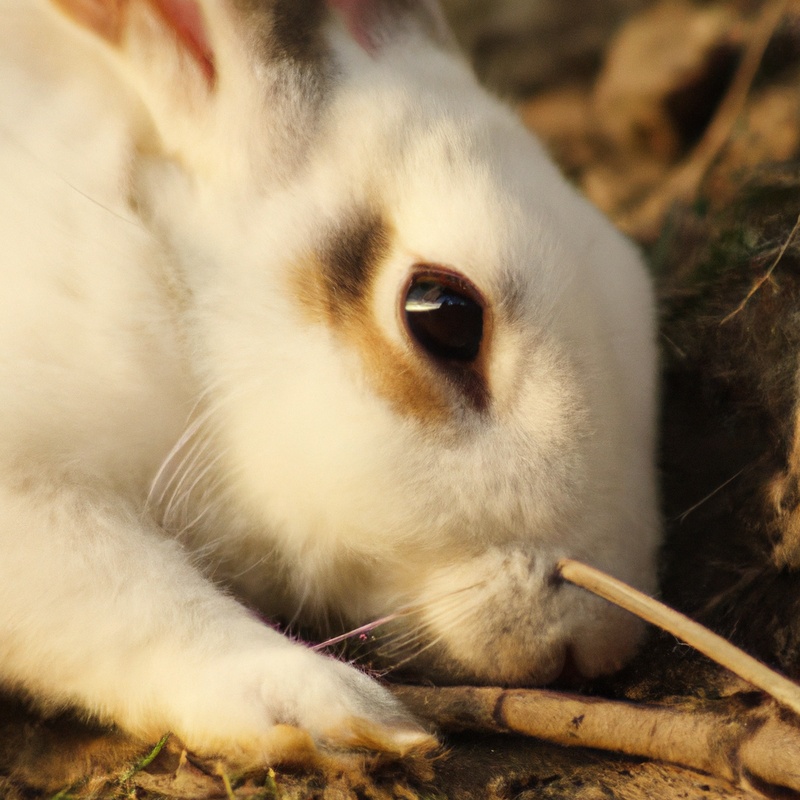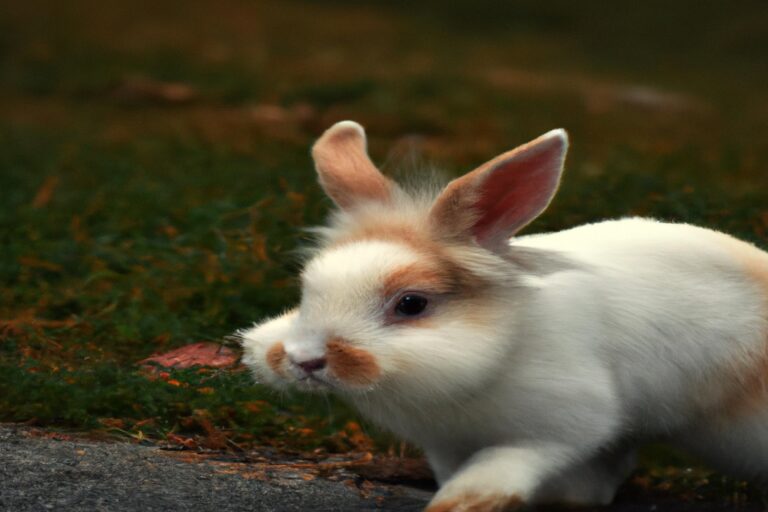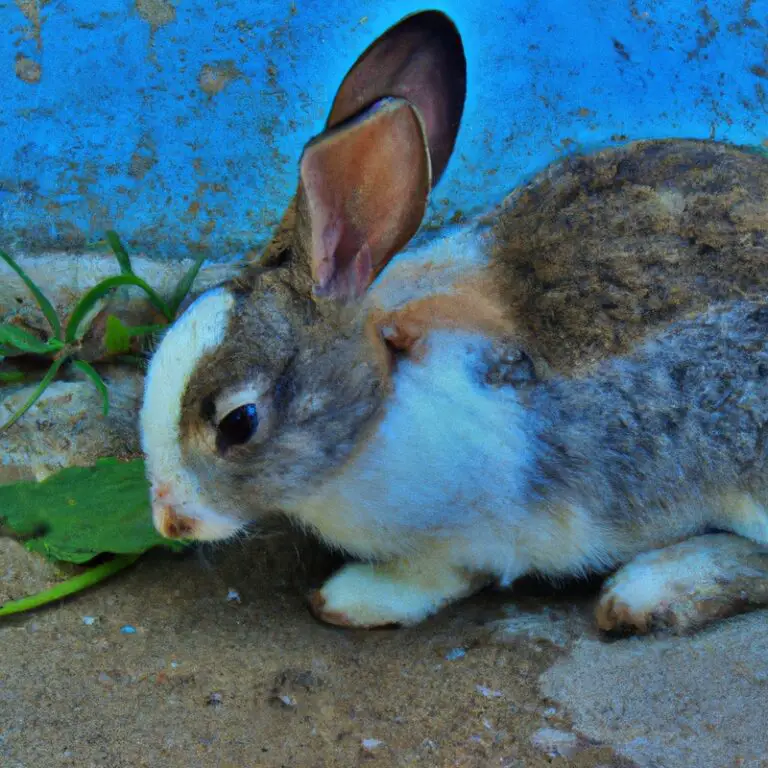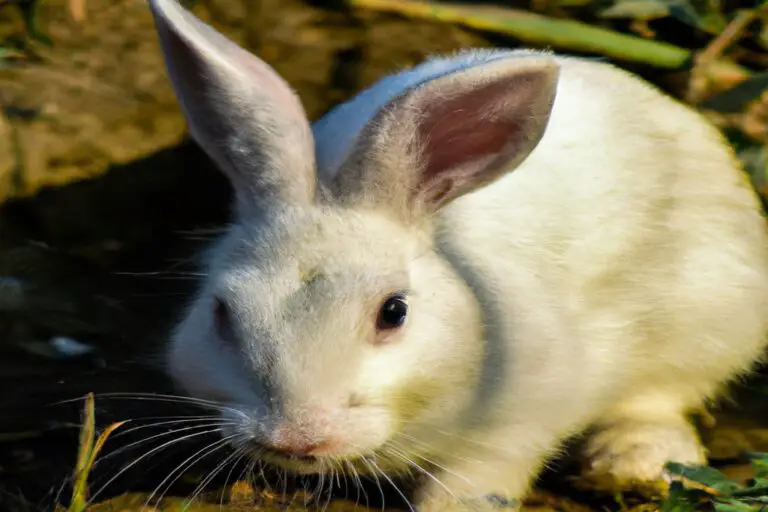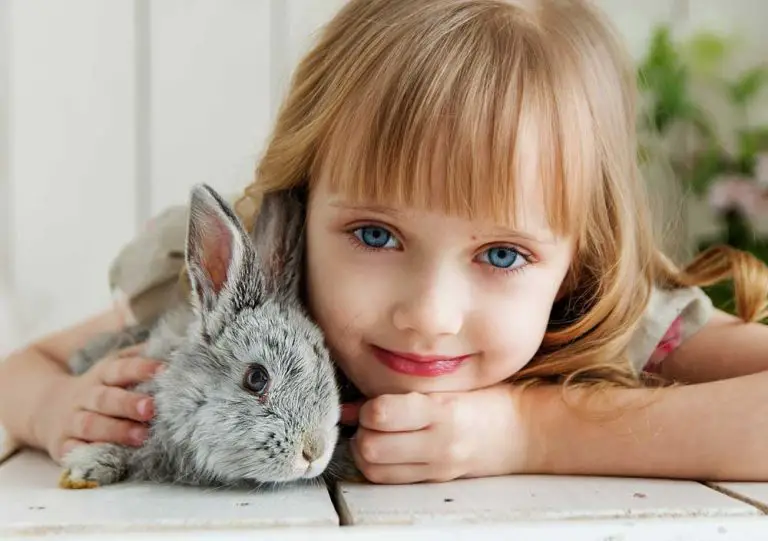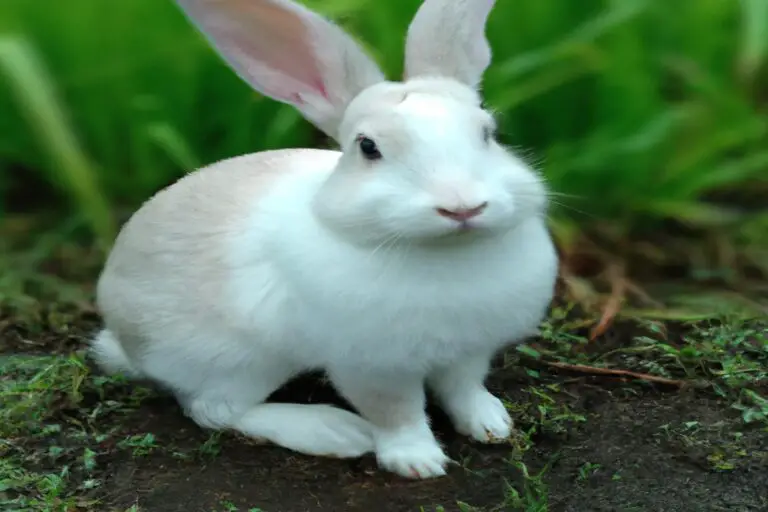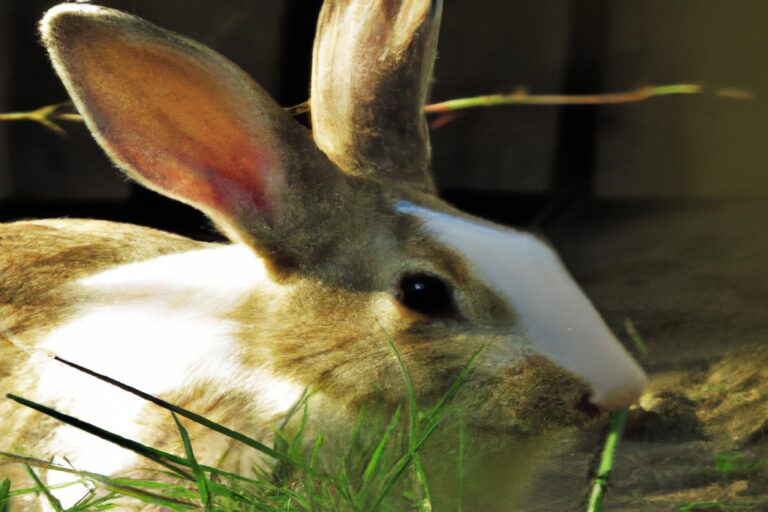Is Parsley Good For Rabbits? An Expert’s Opinion
Key Takeaways:
- Parsley can be a beneficial addition to a rabbit’s diet, providing them with important vitamins and minerals.
- However, it should be given in moderation as excessive consumption of parsley can lead to digestive issues in rabbits.
Are you a dedicated rabbit owner looking to provide your furry friend with a healthy and balanced diet? Well, if you’ve ever wondered whether parsley is a suitable addition to your rabbit’s menu, you’ve come to the right place! In this blog, we’ll explore the nutritional value of parsley, its safety considerations, and the potential benefits it offers to rabbits.
You’ll also discover how to properly prepare and serve parsley, along with some alternative herbs and greens that can complement your rabbit’s diet.
So, let’s dive in and find out if parsley is truly a rabbit’s delight!
What is parsley?
Parsley is an herb that is commonly used as a garnish in cooking, known for its bright green leaves and fresh, slightly peppery flavor.
Definition and appearance of parsley
Parsley is a leafy herb that is commonly used in cooking as a garnish or flavor enhancer.
It has a fresh, grassy aroma and a slightly bitter taste.
Parsley leaves are bright green and have a flat or curly shape, depending on the variety.
The leaves are small and divided into multiple leaflets.
Parsley is often used as a decorative element in dishes or as a key ingredient in recipes such as tabbouleh or pesto.
Its appearance adds a pop of color and freshness to any dish.
Nutritional value of parsley
Parsley is packed with essential nutrients. It is a great source of vitamins A, C, and K, as well as iron and folate.
These vitamins and minerals help support healthy immune function, promote bone health, and aid in blood clotting.
Parsley also contains antioxidants that can help protect against cellular damage and inflammation. Adding parsley to your meals can provide a nutritious boost to your diet.
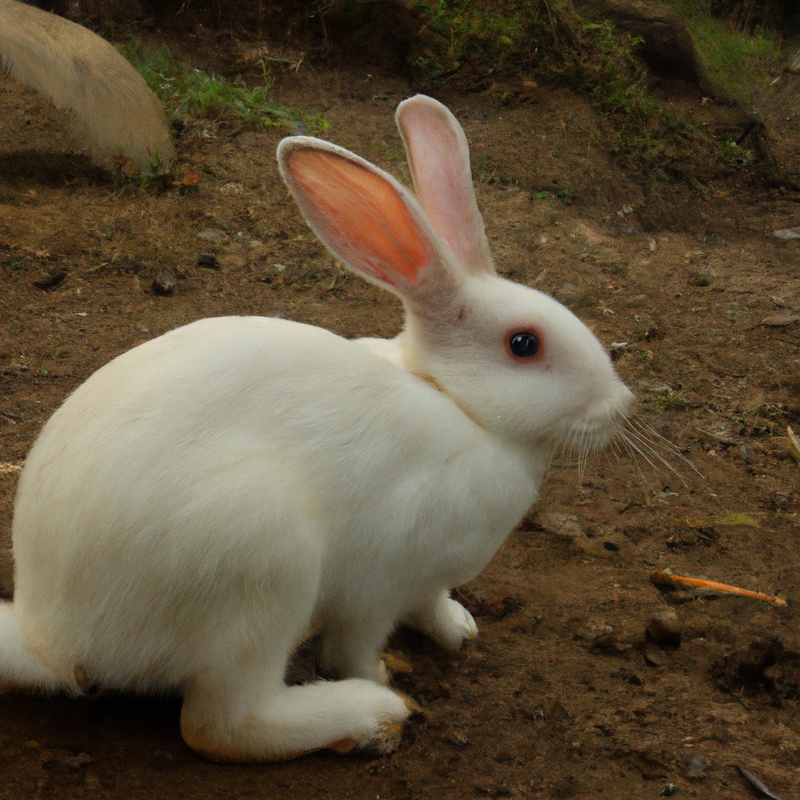
Rabbits and their diet
Rabbits have a unique digestive system that requires a specific diet to stay healthy and thriving.
Understanding what rabbits eat is essential for their overall well-being.
Understanding the digestive system of rabbits
Understanding the digestive system of rabbits is essential for their overall health. Rabbits have a unique digestive system that is designed for a high-fiber diet.
They have a large cecum, which helps break down fiber with the help of beneficial bacteria.
This allows them to extract nutrients from plant materials that other animals cannot digest effectively. However, their sensitive digestive system also means they can be prone to digestive issues, such as gastrointestinal stasis.
Providing a balanced diet rich in hay, fresh vegetables, and limited fruits is crucial for maintaining their digestive health.
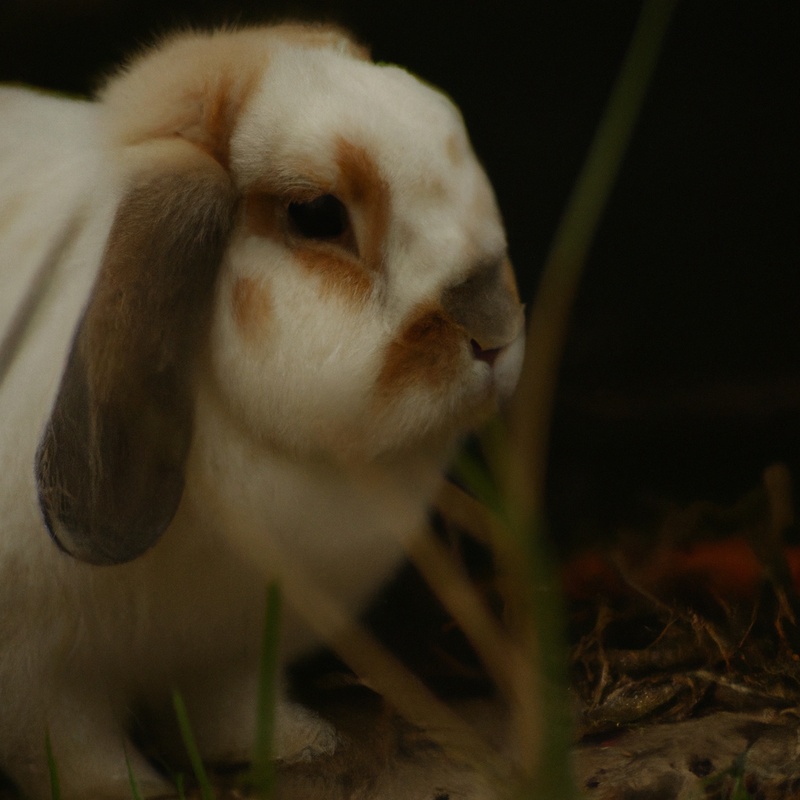
What do rabbits eat?
Rabbits primarily eat hay, fresh vegetables, and pellets.
Hay is an essential part of their diet as it helps promote proper digestion and keeps their teeth in check.
Fresh vegetables provide necessary nutrients, but should be introduced gradually to prevent digestive issues.
Pellets should be fed in moderation to avoid obesity.
Make sure to provide fresh water at all times.
Avoid feeding them foods like chocolate, onions, or anything high in sugar or salt, as these can be harmful to rabbits.
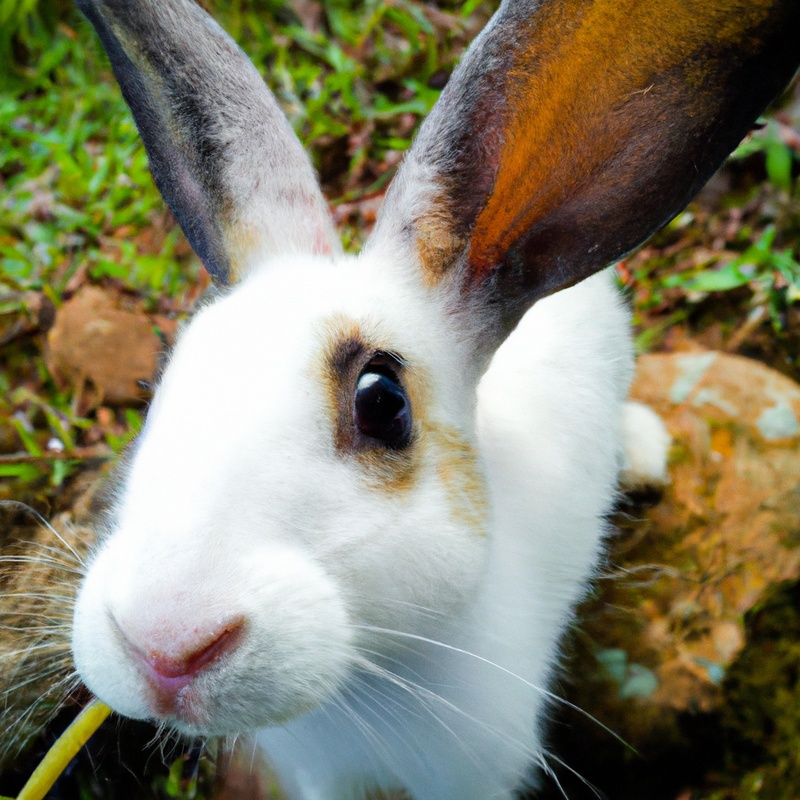
Can rabbits eat parsley?
Yes, rabbits can eat parsley.
Safety considerations when feeding rabbits parsley
When it comes to feeding rabbits parsley, there are some safety considerations to keep in mind.
- Moderation is key: While parsley can be a healthy addition to a rabbit’s diet, it should be given in moderation. Too much parsley can cause digestive issues in rabbits.
- Organic and fresh: Always opt for organic parsley to avoid any pesticides or chemicals. Additionally, make sure the parsley is fresh and free from any wilting or mold.
- Introduce gradually: If you’re introducing parsley to your rabbit’s diet for the first time, do it gradually. Start with a small amount and monitor your rabbit for any signs of allergic reactions or digestive upset.
- Variety is important: Remember that parsley should be just one part of a varied diet for your rabbit. Offer them a mix of fresh vegetables, high-quality hay, and limited amounts of fruits and pellets.
By keeping these safety considerations in mind, you can ensure that parsley is a safe and enjoyable treat for your rabbit.
Benefits of parsley for rabbits
Parsley can be a beneficial addition to a rabbit’s diet.
Here are some benefits:
- Nutritional value: Parsley is rich in vitamins A, C, and K, as well as minerals like calcium and iron. These nutrients are essential for maintaining a rabbit’s overall health.
- Digestive health: The fiber content in parsley can help improve digestion in rabbits, preventing issues like gastrointestinal stasis and promoting regular bowel movements.
- Hydration: Parsley has high water content, which can help keep rabbits hydrated, especially during warmer months.
- Dental health: Chewing on parsley can help wear down a rabbit’s continuously growing teeth, promoting good dental health.
- Variety in diet: Offering parsley as a treat or part of a diversified diet can alleviate boredom and provide rabbits with different textures and flavors.
Remember to introduce parsley gradually and in moderation to avoid any digestive upset.
Always consult with a veterinarian to ensure parsley is suitable for your rabbit’s specific dietary needs.
How to feed parsley to rabbits
To feed parsley to rabbits, wash it thoroughly, remove any wilted or spoiled leaves, and chop it into small, bite-sized pieces before serving.
Preparing and serving parsley for rabbits
Preparing and serving parsley for rabbits is simple and can be a nutritious addition to their diet. Make sure to wash the parsley thoroughly to remove any dirt or chemicals.
Chop it into small, manageable pieces.
Offer parsley as a fresh treat, but remember to introduce it gradually to avoid digestive upset. It’s a good idea to limit the amount of parsley given to rabbits, as too much can lead to stomach upset.
Always monitor your rabbit’s response to parsley and consult with a veterinarian if you have any concerns.
Recommended portion size for rabbits
When it comes to feeding parsley to rabbits, the recommended portion size is small. A few leaves of parsley once or twice a week is enough.
It’s important to remember that parsley should be served as a treat and not as a main part of their diet.
Rabbits need a balanced diet that consists mostly of hay, along with fresh vegetables and a small amount of pellets. Too much parsley can cause digestive issues for rabbits, so moderation is key.
Other herbs and greens suitable for rabbits
There are many other herbs and greens that are suitable for rabbits besides parsley.
Alternatives to parsley for rabbits
If you’re looking for alternatives to parsley for your rabbits, you have plenty of options to choose from.
Some good alternatives include:
- Cilantro: Rabbits generally love the taste of cilantro, and it’s a healthy choice for them too.
- Dill: This herb is not as strong as parsley, but still flavorful and safe for rabbits.
- Basil: It’s a great herb to add variety to your rabbit’s diet, and many rabbits enjoy the taste.
- Mint: While parsley can sometimes lead to gas in rabbits, mint is a safe and refreshing option.
- Arugula: This leafy green is packed with nutrients and makes for a great parsley substitute.
Remember, it’s always important to introduce any new food slowly and in small amounts to see how your rabbits react.
Benefits of including a variety of herbs and greens in a rabbit’s diet
Including a variety of herbs and greens in a rabbit’s diet can be beneficial in several ways:
- Improved digestion: Herbs and greens provide fiber, which aids in promoting healthy digestion in rabbits.
- Nutritional balance: Different herbs and greens offer a diverse range of vitamins, minerals, and antioxidants, enhancing your rabbit’s overall nutrition.
- Dental health: Chewing on herbs and greens helps to wear down a rabbit’s constantly growing teeth, preventing dental issues.
- Mental stimulation: Incorporating a variety of herbs and greens into your rabbit’s diet can provide mental enrichment and prevent boredom.
- Hydration: Some herbs and greens, such as lettuce and cucumber, have high water content, contributing to your rabbit’s hydration needs.
Remember to introduce new herbs and greens gradually to avoid digestive upset, and always consult with a veterinarian for specific dietary recommendations for your rabbit.
Frequently Asked Questions (FAQs)
Can rabbits eat all types of parsley?
Can rabbits eat all types of parsley?
Can parsley be harmful to rabbits?
Parsley can be harmful to rabbits if consumed in large quantities. While small amounts of parsley can provide some nutritional benefits, overfeeding it to rabbits can lead to digestive issues like diarrhea and upset stomach.
The high levels of oxalates in parsley can also cause kidney problems in rabbits.
Therefore, it’s best to limit parsley intake and provide a balanced diet of fresh hay, vegetables, and limited amounts of herbs for your furry friend’s well-being.
How often should parsley be included in a rabbit’s diet?
Parsley can be included in a rabbit’s diet occasionally, but it should not be a staple food. A small amount of parsley, around a tablespoon per day, is sufficient.
However, it should be given as a treat rather than a regular part of their diet.
Rabbits primarily require hay, fresh vegetables, and a small amount of pellets for a balanced diet. Always introduce new foods gradually and monitor your rabbit’s reaction.
Remember to consult with a veterinarian for specific dietary recommendations for your pet rabbit.
What are the signs of parsley toxicity in rabbits?
Signs of parsley toxicity in rabbits may include diarrhea, loss of appetite, drooling, and increased thirst.
They could also exhibit difficulty in breathing, weakness, and even seizures.
If you suspect your rabbit has ingested too much parsley or any other toxic plant, it is important to seek immediate veterinary care.
Final Verdict
Parsley can be a nutritious addition to a rabbit’s diet, providing essential vitamins, minerals, and antioxidants.
However, it’s important to feed parsley in moderation and be aware of any potential safety considerations.
It’s recommended to introduce parsley gradually and monitor your rabbit for any adverse reactions.
Including a variety of herbs and greens in a rabbit’s diet is beneficial for their overall health and well-being.
Remember to consult with a veterinarian for specific dietary recommendations tailored to your rabbit’s needs.

